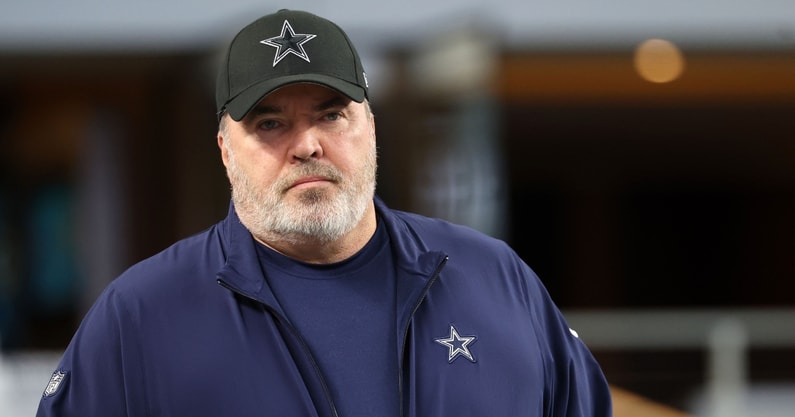Cowboys coach Mike McCarthy opens up about pressure entering final contract year

Dallas Cowboys coach Mike McCarthy opened up this week about the pressure he faces entering his final contract year. When Dallas entered the playoffs in January with a 12-5 regular season record and the NFC East title, it seemed McCarthy was a couple of wins away from a big extension with the team. However, a loss in the first round against the Packers caused that extension to evaporate.
When the former Packers coach took over in Dallas, he signed on a five-year deal. Since then, he’s gone 42-25, but 1-3 in postseason games. Despite not receiving an extension, McCarthy insisted to reporters on Tuesday that there’s no more pressure in 2024 than in any other year. The Cowboys go into every season expecting a shot at the Super Bowl, and any year they fall short of those expectations could mean the end of his tenure.
“I don’t (feel pressure),” McCarthy said. “Because I mean, I think as a coach, you know, every year is, I mean, it’s the same. I mean, let’s be honest, and that’s the way it’s always been. Personally, I’ve been in this spot. This will be the third time, you know, and it’s worked out very well for me. So I’m not really concerned about it.”
McCarthy defends Cowboys’ free agency strategy
Among the topics of discussion during McCarthy’s media availability was the Cowboys’ lack of big moves in free agency. The team has signed just one outside free agent – Eric Kendricks – and allowed nine players to walk. The head coach insisted the key to Dallas’ success lies in second and third-year players making jumps this season.
Top 10
- 1Breaking
Shedeur Sanders drafted
The wait is over
- 2New
Costly fall in NFL Draft
How much plummet costs Shedeur Sanders
- 3
Mel Kiper
Gets fired up talking Shedeur Sanders
- 4Hot
Prank Callers revealed
Video of Shedeur Sanders prank callers
- 5
Picks by Conference
SEC, Big Ten continue to dominate Draft
Get the On3 Top 10 to your inbox every morning
By clicking "Subscribe to Newsletter", I agree to On3's Privacy Notice, Terms, and use of my personal information described therein.
“As your players grow and their value grows, how you keep them all together varies,” he said. “That’s a whole other competition that goes on from year-to-year. The biggest improvement we’ll have as a football team is the development of our young players.”
“If your roster is built the right way, the development of the young guys that may have played 15 plays a game may increase to 45 or 50,” McCarthy added. “Ultimately, maybe you want to have the 70 to 75-play a game player that, to me, would be in the line of a starter. I’ve never approached it as having 11 starters on any side of the ball. You can really take all of our second, third and some of our fourth-year players and put them in that category.”